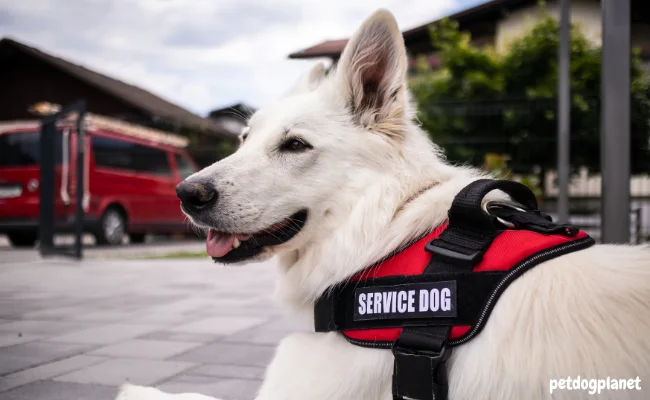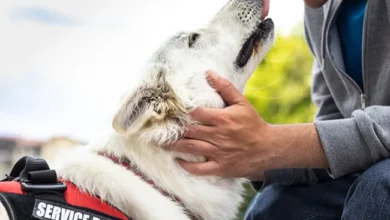
A service animal certificate is often requested by individuals looking to validate their service dog’s role in assisting with a disability. While the concept of a “certificate” can be helpful for identification, it’s important to note that under the Americans with Disabilities Act (ADA), service animals do not require certification to be legally recognized. However, many choose to obtain a certificate for convenience when dealing with landlords, employers, or other parties. This guide will walk you through the process.
Understanding Service Animals and Legal Requirements
What Is a Service Animal?
A service animal is a dog (or, in some cases, a miniature horse) specifically trained to perform tasks that directly assist an individual with a disability. Common examples include:
- Guiding the visually impaired.
- Alerting deaf individuals to sounds.
- Assisting with mobility issues.
- Detecting and responding to medical conditions like seizures or low blood sugar.
Legal Protections for Service Animals
Service animals are protected under the ADA. This means:
- Certification is not legally required.
- You can’t be asked for proof of your disability or your service animal’s certification in public spaces.
- However, documentation can be useful in housing situations, during travel, or when facing misunderstandings.
Steps to Get a Service Animal Certificate
1. Train Your Service Animal
Service animals must be trained to perform specific tasks related to your disability. Training can be done by:
- Professional trainers: Ideal for complex tasks.
- Self-training: Permitted under ADA guidelines if done effectively.
The dog should also exhibit good public behavior, including remaining calm, non-aggressive, and responsive to commands.
2. Consider Documentation for Your Own Use
While not required by law, a service animal certificate or identification can simplify interactions. Many organizations offer certificates that include:
- A printed certificate with your service animal’s details.
- An ID card for quick verification.
- A service animal vest or tag for public identification.
3. Obtain a Service Animal Certification from a Reputable Source
If you choose to get a certificate, make sure it’s from a trusted provider. Many fraudulent organizations exploit people seeking certification. Reputable services will require proof that your animal is trained for specific tasks and may ask for details about your disability.
For a reliable service, visit – https://esacert.com/service-dog-certificate/, which offers documentation packages for both Emotional Support Animals (ESAs) and service animals.
4. Use Your Certificate Where Necessary
While not legally required, a service animal certificate can be useful in these scenarios:
- Housing: To simplify discussions with landlords under the Fair Housing Act (FHA).
- Travel: Some airlines may request documentation.
- Employment: Helps clarify your service animal’s role when requesting reasonable accommodations.
Frequently Asked Questions (FAQ)
1. Is a service animal certificate required by law?
No. Under the ADA, service animals don’t need certification to be legally recognized.
2. What if someone demands proof of my service animal?
Public entities can only ask:
- Whether your animal is required due to a disability.
- What tasks the animal is trained to perform.
3. Can I certify an Emotional Support Animal as a service animal?
No. ESAs provide comfort but are not trained to perform specific tasks related to a disability, which is a requirement for service animals.
4. Can any breed of dog be a service animal?
Yes, any breed can be a service animal if properly trained to perform tasks related to your disability.
5. Are there additional legal protections for service animals during travel or housing?
Yes. Under the FHA and Air Carrier Access Act (ACAA), service animals receive protections that make it easier to access housing and travel accommodations.
References
- Americans with Disabilities Act (ADA): ada.gov
- Fair Housing Act (FHA): hud.gov
- ESAcert Service Animal Documentation: esacert.com
By understanding the legal framework and optionally obtaining a service animal certificate, you can ensure your service animal is recognized and respected in various settings. This step can provide peace of mind and smooth interactions in everyday life.



